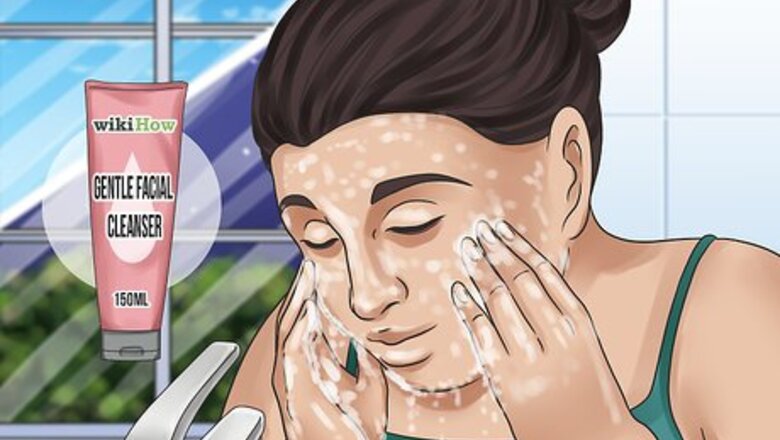
views
Caring for Your Skin
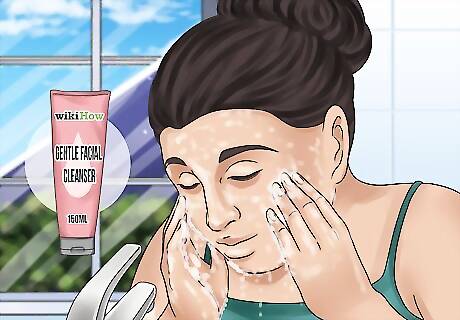
Clean your face before bed every night. If you wear makeup, you should already know you need to wash your face with a gentle cleanser every night. But even if you don’t, oils and impurities from the air can end up on your face throughout the day. These can block your pores, which leads to breakouts and premature aging. Wet your face, then apply your cleanser and rinse thoroughly with clean water. If you are too tired to wash your face, you can use a face wipe to cleanse your skin.
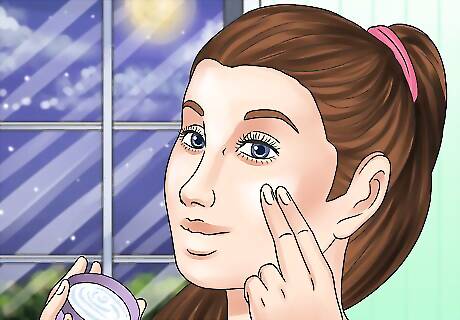
Apply a thick layer of moisturizer to your skin. Nighttime is the perfect time to rehydrate your skin with a moisturizing cream. Smooth on a thick layer, but don’t rub it in all the way. Instead, let it soak in naturally to get the most benefits.
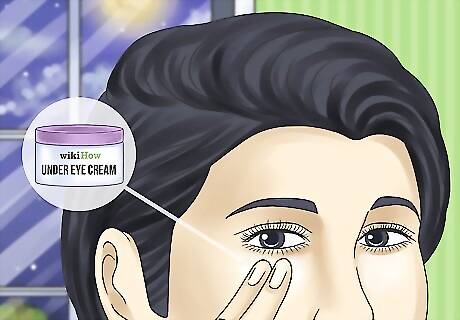
Apply an undereye cream after moisturizing. If you put on an undereye cream and then apply moisturizer, you’ll likely transfer the eye cream to other parts of your face where the cream will be less effective. Applying it after your moisturizer will help ensures it stays where you need it most, hydrating the delicate skin around your eyes.
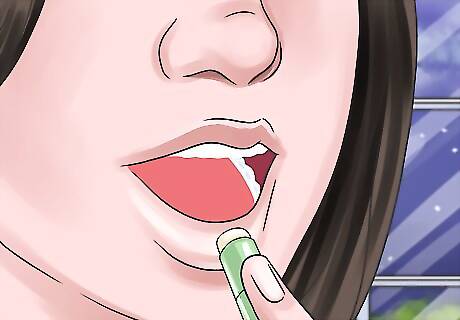
Apply a moisturizing lip balm before you go to sleep. Your lips need to be moisturized just like the rest of your face. Nighttime is the best time to wear lip balm because you won’t be talking, eating, or smooching your crush for a few hours, so slather on your favorite lip moisturizer and wake up with a perfect pout!
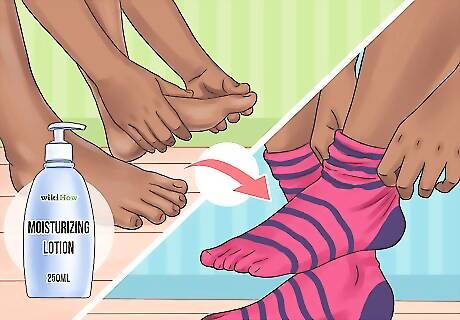
Moisturize your feet every night and put on socks. You’ll wake up with head-to-toe beauty if you take the time to moisturize your feet at night. Cover your feet in thick lotion, avoiding in between your toes. Then, slip on a pair of thick fluffy socks to keep the lotion from getting onto your bed sheets.
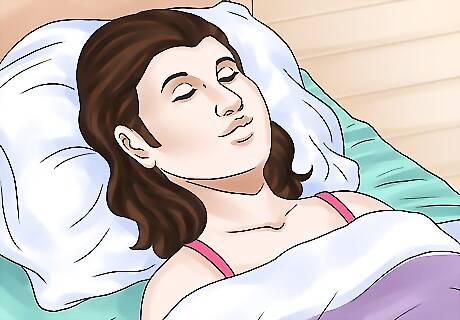
Sleep on your back to prevent wrinkles. If you sleep on your stomach or your side, your pillow will create friction against your face, and gravity pulls your skin downwards. Over time, this can lead to wrinkles on your face. In addition to the benefits for your face, sleeping on your back holds your neck and spine in a more natural alignment. Fluid can pool under your eyes, creating dark circles. Use an extra pillow when you sleep to help prevent these bags from forming.
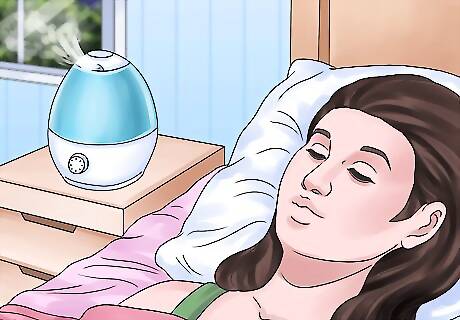
Use a humidifier when you sleep. Hydration is important to the health of your skin, even when you're sleeping. Place a humidifier in your room and turn it on when you go to bed, especially in the winter when the air tends to be dry.

Drink about 100 fluid ounces (3.0 L) of water a day. Drinking water helps remove impurities from your body and it’s essential to having healthy-looking skin. If you need help drinking more water, carry a large water bottle around with you to remind you to drink up.
Protecting Your Hair at Night
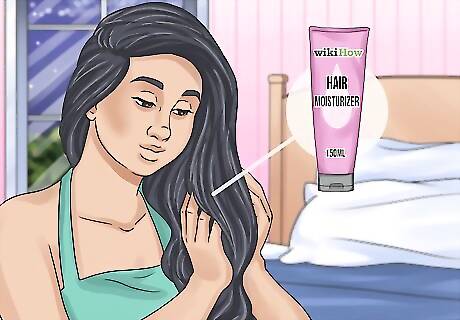
Apply a moisturizer to your hair before bed for extra conditioning. If your hair is very dry, apply a thick conditioning mask to your hair, then wrap your head in a scarf while you sleep. Rinse out the mask in the morning. If your hair tends to be oily, apply a light oil, like argan or coconut oil, to the very ends of your hair to help prevent split ends.

Wear your hair up in a loose style if it’s long. Protect your hair from friction by wearing it in a loose braid, bun, or ponytail while you’re sleeping. Don’t pull your hair too tight, though, or it may break.
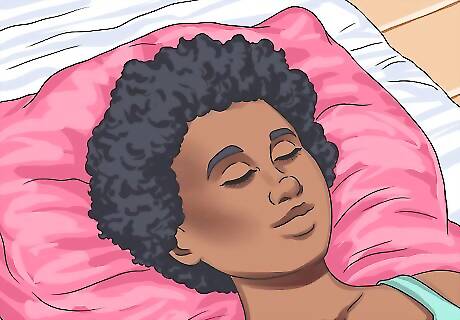
Sleep on a satin or silk pillowcase to protect your hair while you sleep. Regular cotton pillowcases can grip the fibers of your hair. Over time, this can cause your hair strands to weaken and even break. Opt for a smooth material like silk or satin instead, so your hair will slip smoothly across the surface of your pillow as you sleep.
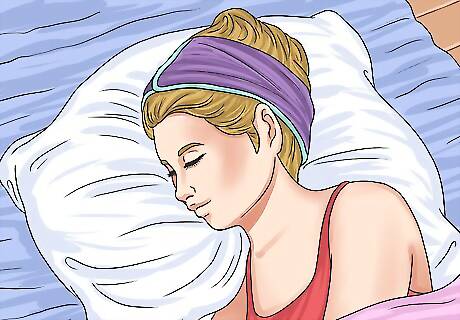
Wrap your hair in a scarf if you don’t have a satin pillowcase. Wrapping up your hair in a scarf or other head wrap is a great way to protect fragile locks. This can also help you preserve a hairstyle for the next day.
Sleeping Comfortably
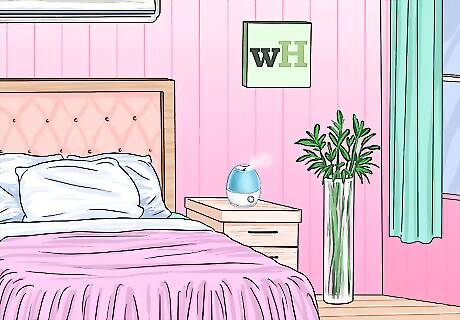
Create a peaceful environment in your bedroom. Your bedroom should be cool, dark, and quiet to help you get the best sleep possible. Adjust the temperature to one that’s comfortable for you, and consider using a fan or other white noise to help block out sounds from the outside world. If you can, invest in a nice set of sheets so you feel comfortable when you get into the bed. The most luxurious sheets have a thread count of 300-400, but you'll still get a silky feel as long as your sheets are in the 250-300 thread count range. Keep your bedroom tidy so you feel relaxed when you go in there. Pick up any laundry and straighten your nightstand or the top of your dresser before you go to bed.
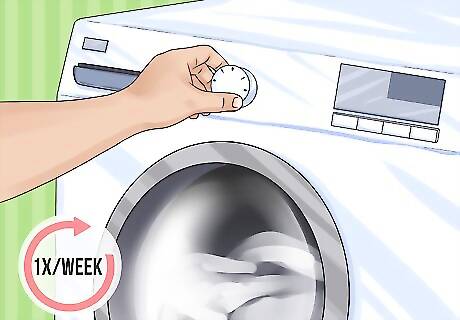
Wash your sheets once a week. Sweat, dead skin cells, and other impurities can build up in your bedding, leading to sheets that don't give you that crisp cool feeling when you lay down. Keep your bed cozy and clean by washing your sheets once a week if you can, or every other week at the very least.
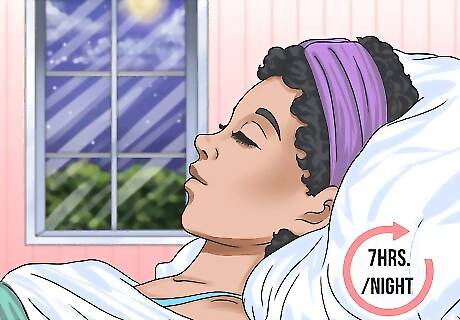
Stick to a sleep schedule if you can. Whenever possible, try to wake up and go to sleep at the same time every day. This will help your body know when it’s time to wind down for the night, and you’ll wake up feeling more rested — which is sure to show on your face! Aim for at least 7 hours of sleep a night.

Avoid alcohol and caffeine for 3-4 hours before bed. Although alcohol is a depressant and caffeine is a stimulant, both can disrupt your sleep cycles. Switch to water a few hours before you know you’ll be laying down so you can get a good night’s sleep and wake up looking refreshed.

Turn off your phone and other electronics before you go to sleep. Phones, TVs, and computers emit a blue light that is similar to sunlight. This light can trick the brain into thinking it’s daytime, keeping you from falling asleep.
















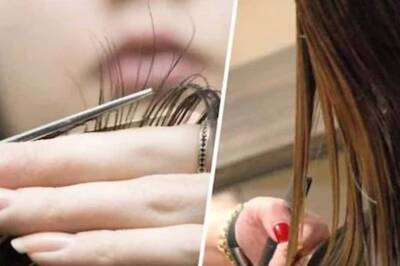



Comments
0 comment